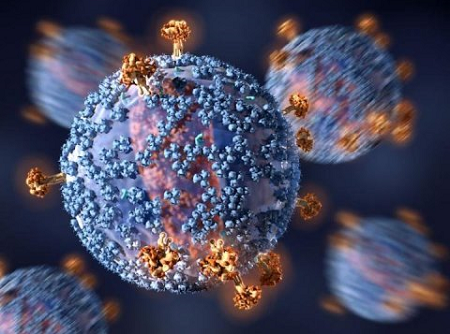Promising HIV Vaccine Candidate Identified Through Human-Focused Research

Vaccines work by using foreign molecules called immunogens to induce B cells in the immune system to produce antibodies to neutralize or eliminate pathogens that harbor those molecules. Developing a vaccine against HIV has been challenging, as the virus mutates rapidly. There are people who are known to be repeatedly exposed to HIV but never progress to develop AIDS despite no treatment. Some of these so-called long-term nonprogressors appear to have the ability to produce broadly neutralizing antibodies (bnAb) that are capable of preventing HIV infection. Immunizing people with protein immunogens capable of inducing precursor B cells to produce bnAb may be an effective HIV vaccine development strategy. However, it was not known whether an immunogen with sufficient affinity could be developed for this purpose and whether the precursor B cells that can respond to it are present in most people. Scientists from The Scripps Research Institute (TSRI), the International AIDS Vaccine Initiative (IAVI) and the La Jolla Institute for Allergy and Immunology recently published a study in Science where they improved the affinity of a previously known bnAb-inducing immunogen by mutating every single position on this protein to find most optimal binding sequence. The newly optimized immunogen they identified by yeast display library screening and next-generation sequencing has a binding affinity 2,100 times greater than the original immunogen. Using donated blood from 15 healthy volunteers, they subsequently demonstrated that about 96 percent of people have sufficient precursor B cells that would respond to this new immunogen. This human-based approach offers a promising new vaccine candidate for HIV with data supporting its effectiveness in humans while also serving as a model strategy to develop similar vaccine candidates for other diseases.
References
- Jardine JG, Kulp DW, Havenar-Daughton C, et al. HIV-1 broadly neutralizing antibody precursor B cells revealed by germline-targeting immunogen. Science. 2016; 351:1458. DOI: 10.1126/science.aad9195. http://science.sciencemag.org/content/351/6280/1458. Accessed April 19, 2016.








